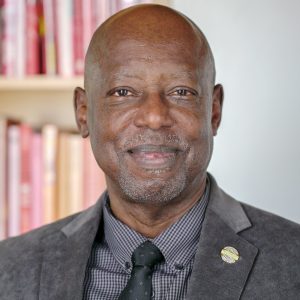Stones Refused: A Cenacle in South Central
 It’s almost the close of our 2018 Emerging Voices calendar, and Fellows Jubi Arriola-Headley, Ron L. Dowell, Natalie Mislang Mann, Angela M. Sanchez, and Francisco Uribe have words to share. A weekly series through the end of July, PEN America’s blog will feature essays on these writers’ lives and how Emerging Voices helped them claim “writer” as identity.
It’s almost the close of our 2018 Emerging Voices calendar, and Fellows Jubi Arriola-Headley, Ron L. Dowell, Natalie Mislang Mann, Angela M. Sanchez, and Francisco Uribe have words to share. A weekly series through the end of July, PEN America’s blog will feature essays on these writers’ lives and how Emerging Voices helped them claim “writer” as identity.
Are you a writer? Apply to be a 2019 Emerging Voices Fellow through August 1. Want more of the 2018 Fellows? Join us for the Final Reading on August 3 at the Moss Theater in Los Angeles or via Facebook Live.
Stones Refused: A Cenacle in South Central
Something shifted at fourteen as you watched, from atop your baseball backstop sanctuary, stores surrounding your public projects home burn in hot August 1965. Uprising, rebellion, riot. Your limbs shake, and you’re scared shitless.
You grew up in Watts and Compton, California, and until then, your childhood had been blessed only with Compton’s Encyclopedia that your mom bought from a door-to-door salesman. The literary world didn’t come to your side of the 10 Freeway but baseball cards, DC Comics, Jet, and MAD Magazines did. Those mags, Star Trek, and 007 sparked your interest in realism, fantasy, and fiction. Later you read Greenlee’s The Spook Who Sat by the Door, which eventually led you to read works by Frederick Douglass, Franz Kafka, Zora Neale Hurston, and Octavia Butler.
As a college student and L.A. County public servant, you write so much that you develop a callus on your right middle finger. Even though you enjoy writing creative budget requests to fund alcohol and other drug programs, it never occurs to you that maybe you could, might, or should write stories. Still, you feel compelled to write something, anything that might improve the community where you live. You try journalism for a while, but it’s like straight jacketing your mind and body. You retire from L.A. County but not from public service.
You stumble across the writing program at UCLA and recall how you once loved reading fiction. In your classes you meet Emerging Voices Fellows. They speak highly of their experiences. You read their work, look at yours, read theirs again, look at your own, and decide to apply. Since you’re old, black, and male, things don’t look promising. Surprise. You’re selected.
During orientation you read this:
It is PEN America’s hope that you will leave Emerging Voices Fellowship with skills and knowledge to launch a professional writing career.
Your longtime interest in sci-fi gets you a mentor. As it happens, Tananarive Due is your best friend’s favorite author and a year before he turned you on to her work. She helps you make three short stories publishable. Now all you have to do is submit them.
You discover that writing short stories is one thing, reading them aloud, quite another. You know this because you cringe to the recording of your first reading at the LACE Welcoming Party and compare it to a much-improved performance next time at Hotel Café that comes after a session with Voice Coach, Dave Thomas.
You attend author evenings with Victoria Chang, poet; Charles Yu, Dana Johnson, and David Francis, fiction writers; and Reyna Grande and Francesca Lia Block, memoirists.
On the journey you meet agents, publicist, publishers, copy editors. You work author sign-in at the L.A. Times Festival of Books where, having studied the presenter list, you prepare by bringing along books by Natashia Deón, Mark Sarvas, and L.A. Poet Laureate and your Compton home girl, Robin Coste Lewis. They all show, they all sign. You smile—a lot.
EV offers so much that you sometimes struggle writing your stories. Thank God you’re workforce retired. The stipend helps as does the evergreen membership.
You develop cohesive bonds with current and past EV Fellows.
You give back to the literary community with your volunteer project. You establish an eight-week How to Write Short Story Fiction course at East Rancho Dominguez Library near Compton. The work involved is more than a notion, but participants have stories to tell that won’t otherwise get told. It’s important to you that they are plugged into the literary scene in L.A. You give them attention, nurture, and encourage them as you’ve been nurtured, encouraged, and driven by PEN America’s Amanda Fletcher and Natalie Green.
It’s still hard to believe that you’d receive so much from the Emerging Voices Fellowship for something you’d do for free. Attention encourages. That’s why we must have literary and all arts in Watts/Compton. It’s important that we express our experience for our benefit and for the world’s.
We learn through stories, we experience through stories, we are stories.






